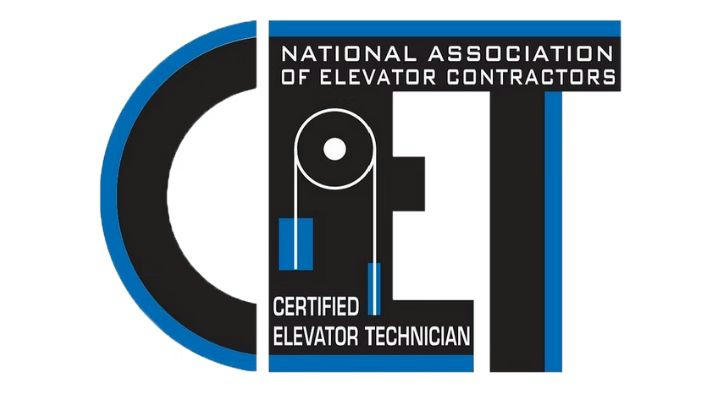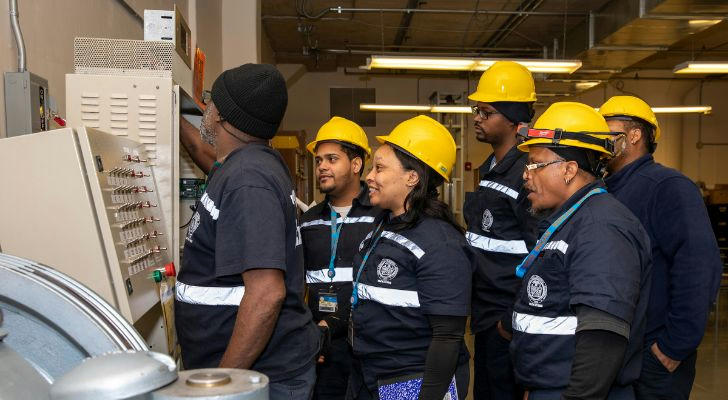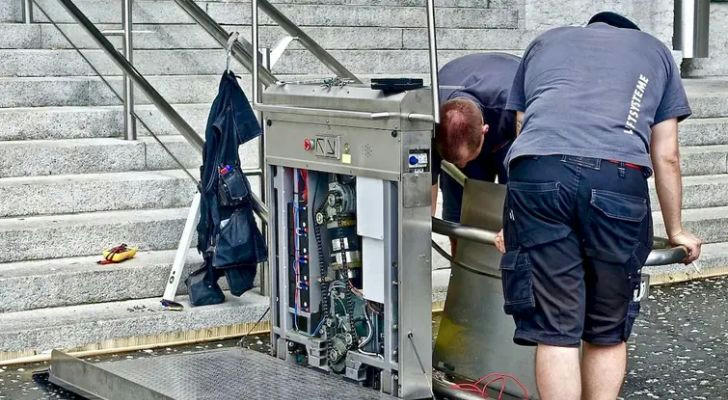From Scratch: How to Become a Certified Elevator Technician and Boost Your Income
If you are an American with no experience or formal education, obtaining a Certified Elevator Technician (CET) certification can be a viable path to increase your income. This article provides a detailed guide on how to become a certified elevator technician.

One, What is CET Certification?
CET certification is offered by the National Association of Elevator Contractors (NAEC) to ensure that elevator technicians possess the necessary knowledge and skills to meet industry standards and safety requirements. This certification is widely recognized in the elevator industry and can lead to licensure in most states.
Benefits of CET Certification
High-Paying Career: The average annual salary for elevator technicians is much higher than the national average.
Stable Demand: The demand for elevator technicians is projected to grow by 6% by 2030.
Career Advancement: CET certification offers better opportunities for career advancement, including becoming a senior technician or transitioning into related management roles.
Why Choose a Career as an Elevator Technician?
The career of an elevator technician not only offers high pay but also provides a stable work environment and broad development prospects. As urbanization progresses, the demand for high-rise buildings continues to increase, which also drives the demand for elevator technicians. Additionally, the constant updates in elevator technology and safety standards require technicians to continuously learn and adapt to new technologies, providing more opportunities for career development.
Two, How to Obtain CET Certification?
To obtain CET certification, you must complete a 4-year education and training program that includes both theoretical learning and practical training. Here are the specific steps:
1. Basic Requirements
Age: You must be at least 18 years old.
Education: A high school diploma or GED is typically required.
Cost: You will need to pay annual course fees and membership dues.

2. Training Content
CET Level 1: Core courses covering 11 units, typically completed over two years. Topics include elevator installation, repair, and electrical principles.
CET Level 2: Advanced courses covering 8 units, also completed over two years. These delve deeper into elevator technology and safety standards.
3. Practical Training
On-Site Skills Verification: Practical training under the guidance of experienced technicians to ensure you acquire necessary hands-on skills.
Importance of Practical Training: Practical training is a crucial part of obtaining CET certification, as it allows you to apply your knowledge and skills in real-world settings.
4. Exams and Certification
Theory Exam: Pass a theoretical exam to demonstrate understanding of elevator principles and safety regulations.
Practical Exam: Pass a practical skills assessment to demonstrate your ability to perform tasks.
Three, Career Analysis
The career prospects for elevator technicians are very promising, with the following analysis:

1. Job Market
Growing Demand: The demand for elevator technicians is expected to continue growing, especially in urban areas.
Geographical Distribution: Job opportunities are mainly concentrated in New York, Texas, and Florida.
2. Career Challenges
Work Intensity: Elevator technicians may work in confined spaces or at heights, requiring strong physical endurance.
Continuous Learning: Elevator technology is constantly evolving, requiring ongoing education on new technologies and safety standards.
3. Career Development
Promotion Opportunities: Through experience, you can advance to senior technician roles or transition into management positions.
Cross-Industry Opportunities: You can also transition into related fields like elevator design or safety inspection.
Four, Success Stories
Case 1: The Story of a Third-Generation Elevator Technician
A third-generation elevator technician in New York City, who co-founded a company with his father, had over five years of experience. Despite having extensive practical experience, he still sought formal certification to enhance his career development. This case illustrates that even with rich experience, obtaining certification is an important step for career advancement.
Case 2: Success of Apprenticeship Programs
At the University of Maryland, Baltimore (UMB), elevator apprenticeship programs have effectively enhanced team members' technical skills and met employee needs. Through this program, team members can directly enter advanced courses after completing core courses, saving a significant amount of time. This flexible training approach allows trainees to adapt more quickly to industry demands.

Five, Enrollment Channels and Training Resources
If you are interested in pursuing a career as an elevator technician, you can enroll in related training through the following channels:
National Association of Elevator Contractors (NAEC): Provides CET certification training and exam information.
CareerOneStop: A website offering apprenticeship training and career development resources.
Community Colleges: Many community colleges offer courses and certification training related to elevator technology.
Upwardly Global: Assists international professionals in restarting their careers in the U.S.
Six, Conclusion
Becoming a certified elevator technician through CET certification is an effective way to increase your income and secure a stable career. Although it requires a 4-year commitment, the ultimate reward is well worth it. The career prospects for elevator technicians are promising, making it suitable for those willing to acquire high-skilled, high-paying careers through practice and learning. Through this profession, you not only gain economic stability but also achieve personal fulfillment in continuous learning and growth.
